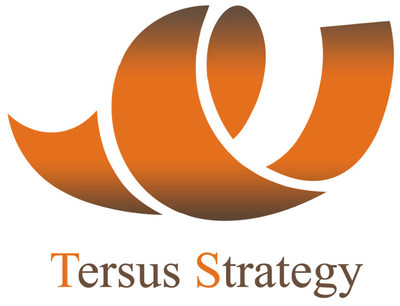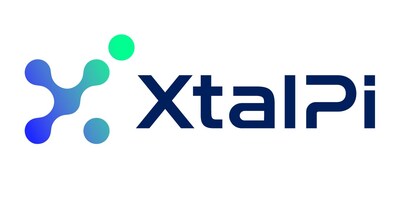Global Next-Generation Smart Grid Solutions Market was valued at $ 11.6 Billion in 2023 and is projected to grow at a CAGR of 22.4% through 2030
Press Releases
Feb 26, 2024
MILWAUKEE, Feb. 26, 2024 /PRNewswire/ — The “Global Next-Generation Smart Grid Solutions Market by Component (Hardware, Software, Services), by Technology (Advanced Metering Infrastructure (AMI), Grid Automation, Communication Networks, Renewable Energy Integration (Distributed Energy Resources (DERs), Microgrids, Energy Storage), Big Data Analytics, Cybersecurity, Artificial Intelligence (AI) and Machine Learning, and Others), by Application (Generation, Transmission, Distribution, Consumption), by End User (Utilities, Industrial, Commercial, Residential), and by Regions-Forecast to 2030” report has been added to Tersus Strategy’s offering.

The next-generation smart grid solutions market is experiencing significant growth and innovation as utilities worldwide seek to modernize and enhance the efficiency of their power distribution systems. This market is characterized by the integration of advanced technologies such as smart meters, grid automation, communication networks, and artificial intelligence. Key drivers for the adoption of these solutions include the need for improved grid reliability, integration of renewable energy sources, and the rising demand for energy efficiency.
Major players in the market, including General Electric (GE), Siemens, ABB, and Schneider Electric, are at the forefront of providing comprehensive smart grid solutions. These solutions encompass intelligent substations, distribution automation, cybersecurity measures, and advanced metering infrastructure. As the world transitions towards a more sustainable energy future, the market also sees the integration of renewable energy sources, demand response programs, and electrification of transportation into the smart grid ecosystem.
The convergence of big data analytics, artificial intelligence, and IoT technologies is empowering utilities to make data-driven decisions, optimize grid operations, and enhance predictive maintenance. Cybersecurity remains a critical focus to protect smart grid infrastructure from potential threats. The market is witnessing standardization efforts to ensure interoperability among diverse components and systems. Overall, the next-generation smart grid solutions market is poised for continued expansion, driven by the ongoing global energy transition and the need for resilient, sustainable, and intelligent power distribution systems.
For more information about this report visit: https://tersusstrategy.com/product/global-next-generation-smart-grid-solutions-market-2024-2030/
In the dynamic landscape of next-generation smart grid solutions, various trends shape different facets of the energy ecosystem. In power generation, the integration of distributed energy resources (DERs) and renewable sources is a prominent trend, fostering cleaner and more sustainable energy production. Transmission networks are witnessing advancements in digital substations and grid automation, enhancing reliability and adaptability to changing grid conditions. Distribution systems are undergoing a transformation with the introduction of distribution automation and self-healing grids, optimizing efficiency and minimizing downtime. At the consumption level, smart grid technologies empower consumers through real-time data, enabling better energy management and the integration of demand-side management. The rise of smart home technologies and dynamic pricing models further engages consumers in efficient energy usage. Overall, the smart grid landscape is characterized by trends that collectively drive towards a more resilient, sustainable, and interactive energy ecosystem across the entire energy value chain
Across diverse end-user segments, the trends in next-generation smart grid solutions reflect the evolving needs and priorities of utilities, industrial entities, commercial enterprises, and residential consumers. For utilities, a trend involves extensive grid modernization efforts, including the integration of advanced analytics and artificial intelligence for predictive maintenance and optimal grid operations. In the industrial sector, the adoption of smart grid technologies is characterized by enhanced energy efficiency measures, demand response systems, and the integration of renewable energy sources into manufacturing processes. Commercial entities are increasingly leveraging smart grid solutions to optimize energy consumption through building management systems, IoT-driven sensors, and data analytics, resulting in operational cost savings. In residential settings, the proliferation of smart meters, home energy management systems, and the growing use of electric vehicles contribute to a more informed and engaged consumer base, promoting energy conservation and sustainability. These trends collectively underscore the broad and transformative impact of smart grid technologies across diverse end-user segments.
Request detailed sample of this study: https://tersusstrategy.com/product/global-next-generation-smart-grid-solutions-market-2024-2030/
Key Topics Covered:
1. Report Scope
1.1. Market Segmentation and scope
1.2. Regional Scope
1.3. Estimates and forecast timeline
2. Market Research Methodology
2.1. Research methodology and design
2.2. Sample selection
2.3. Reliability and validity
3. Executive Summary
4. Market Analysis
4.1. Market size and growth rates
4.2. Market growth drivers, market dynamics and trends
4.3. Market scenarios and opportunity forecasts
4.4. Market constraints and challenges
4.5. Industry value chain analysis
4.6. Industry analysis – Porter’s
4.6.1. Threat of new entrants
4.6.2. Bargaining power of suppliers
4.6.3. Bargaining power of buyers
4.6.4. Threat of substitutes
4.6.5. Competitive rivalry
4.7. PEST analysis
4.7.1. Political/legal landscape
4.7.2. Economic landscape
4.7.3. Social landscape
4.7.4. Technological landscape
5. Market Breakdown by Component
5.1. Introduction
5.2. Hardware
5.2.1. Smart Meters
5.2.2. Sensors
5.2.3. Communication Infrastructure
5.2.4. Transformers
5.2.5. Others
5.3. Software
5.3.1. Grid Management Systems
5.3.2. Asset Management Systems
5.3.3. Data Analytics and AI/ML Platforms
5.3.4. Security and Cybersecurity Solutions
5.3.5. Customer Engagement and Billing Systems
5.4. Services
5.4.1. Consulting
5.4.2. Deployment and Integration
5.4.3. Support and Maintenance
5.4.4. Training and Education
6. Market Breakdown by Technology
6.1. Introduction
6.2. Advanced Metering Infrastructure (AMI)
6.3. Grid Automation
6.4. Communication Networks
6.5. Renewable Energy Integration
6.5.1. Distributed Energy Resources (DERs)
6.5.2. Microgrids
6.5.3. Energy Storage
6.6. Big Data Analytics
6.7. Cybersecurity
6.8. Artificial Intelligence (AI) and Machine Learning
6.9. Others
7. Market Breakdown by Application
7.1. Introduction
7.2. Generation
7.3. Transmission
7.4. Distribution
7.5. Consumption
8. Market Breakdown by End User
8.1. Introduction
8.2. Utilities
8.3. Industrial
8.4. Commercial
8.5. Residential
9. Market Breakdown – by Geography
9.1. North America
9.1.1. North America Next-Generation Smart Grid Solutions Market, 2024-2030
9.1.2. North America Next-Generation Smart Grid Solutions Market, by Component
9.1.3. North America Next-Generation Smart Grid Solutions Market, by Technology
9.1.4. North America Next-Generation Smart Grid Solutions Market, by Application
9.1.5. North America Next-Generation Smart Grid Solutions Market, by End User
9.1.6. North America Next-Generation Smart Grid Solutions Market, by Country
9.1.6.1. U.S.
9.1.6.2. Canada
9.1.6.3. Mexico
9.2. South America
9.2.1. South America Next-Generation Smart Grid Solutions Market, 2024-2030
9.2.2. South America Next-Generation Smart Grid Solutions Market, by Component
9.2.3. South America Next-Generation Smart Grid Solutions Market, by Technology
9.2.4. South America Next-Generation Smart Grid Solutions Market, by Application
9.2.5. South America Next-Generation Smart Grid Solutions Market, by End User
9.2.6. South America Next-Generation Smart Grid Solutions Market, by Country
9.2.6.1. Argentina
9.2.6.2. Brazil
9.2.6.3. Others
9.3. Europe
9.3.1. Europe Next-Generation Smart Grid Solutions Market, 2024-2030
9.3.2. Europe Next-Generation Smart Grid Solutions Market, by Component
9.3.3. Europe Next-Generation Smart Grid Solutions Market, by Technology
9.3.4. Europe Next-Generation Smart Grid Solutions Market, by Application
9.3.5. Europe Next-Generation Smart Grid Solutions Market, by End User
9.3.6. Europe Next-Generation Smart Grid Solutions Market, by Country
9.3.6.1. Germany
9.3.6.2. France
9.3.6.3. U.K.
9.3.6.4. Russia
9.3.6.5. Italy
9.3.6.6. Spain
9.3.6.7. Sweden
9.3.6.8. Switzerland
9.3.6.9. Finland
9.3.6.10. Ireland
9.3.6.11. Poland
9.3.6.12. Austria
9.3.6.13. Norway
9.3.6.14. Netherlands
9.3.6.15. Others
9.4. Asia-Pacific
9.4.1. APAC Next-Generation Smart Grid Solutions Market, 2024-2030
9.4.2. APAC Next-Generation Smart Grid Solutions Market, by Component
9.4.3. APAC Next-Generation Smart Grid Solutions Market, by Technology
9.4.4. APAC Next-Generation Smart Grid Solutions Market, by Application
9.4.5. APAC Next-Generation Smart Grid Solutions Market, by End User
9.4.6. APAC Next-Generation Smart Grid Solutions Market, by Country
9.4.6.1. China
9.4.6.2. Japan
9.4.6.3. South Korea
9.4.6.4. India
9.4.6.5. Singapore
9.4.6.6. Australia
9.4.6.7. Others
9.5. Middle East & Africa
9.5.1. MEA Next-Generation Smart Grid Solutions Market, 2024-2030
9.5.2. MEA Next-Generation Smart Grid Solutions Market, by Component
9.5.3. MEA Next-Generation Smart Grid Solutions Market, by Technology
9.5.4. MEA Next-Generation Smart Grid Solutions Market, by Application
9.5.5. MEA Next-Generation Smart Grid Solutions Market, by End User
9.5.6. MEA Next-Generation Smart Grid Solutions Market, by Country
9.5.6.1. Saudi Arabia
9.5.6.2. UAE
9.5.6.3. Israel
9.5.6.4. Qatar
9.5.6.5. South Africa
9.5.6.6. Others
10. Competitive Landscape
10.1. Company Market Positioning
10.2. Company Geographical Presence Analysis
10.3. Market Revenue Share Analysis (%), by Leading Players
11. Company Profiles
• Company Overview
• Financial Performance
• Product Benchmarking
• Recent Developments
Established Players
1. General Electric
2. Siemens
3. Schneider Electric
4. ABB
5. Eaton
6. Itron
7. Landis+Gyr
8. EDMI
9. Enel
10. Engie
11. Iberdrola
12. Honeywell
13. Cisco
14. Huawei
15. Microsoft
16. IBM
17. Oracle
Emerging Players
18. GridBeyond
19. sonnen GmbH
20. AutoGrid
21. Greenbird Integration Technology
22. Enchanted Rock
23. Guardtime
For more information about this report visit : https://tersusstrategy.com/product/global-next-generation-smart-grid-solutions-market-2024-2030/
Other Recent Studies :
Global High-Speed Sorting Equipment Market, 2024-2030: https://tersusstrategy.com/product/global-high-speed-sorting-equipment-market-2024-2030/
Global Remote Operation and Autonomous Features in Construction Machinery Market, 2024-2030: https://tersusstrategy.com/product/global-remote-operation-and-autonomous-features-in-construction-machinery-market-2024-2030/
Global Vehicle Flame Detection and Suppression Systems (FDSS) Market, 2024-2030: https://tersusstrategy.com/product/global-vehicle-flame-detection-and-suppression-systems-fdss-market-2024-2030/
Global Next-Generation Extrusion Equipment Market, 2024-2030: https://tersusstrategy.com/product/global-next-generation-extrusion-equipment-market-2024-2030/
Media Contact:
Tersus Strategy
Kevin Matthew, Business Development Manager
[email protected]
+1 (414) 882-8941
333 W Brown Deer Rd. 53217-2372 Milwaukee Wisconsin USA
Logo: https://mma.prnewswire.com/media/1736907/Tersus_Logo.jpg
![]() View original content:https://www.prnewswire.com/news-releases/global-next-generation-smart-grid-solutions-market-was-valued-at–11-6-billion-in-2023-and-is-projected-to-grow-at-a-cagr-of-22-4-through-2030–302071052.html
View original content:https://www.prnewswire.com/news-releases/global-next-generation-smart-grid-solutions-market-was-valued-at–11-6-billion-in-2023-and-is-projected-to-grow-at-a-cagr-of-22-4-through-2030–302071052.html
SOURCE Tersus Strategy



